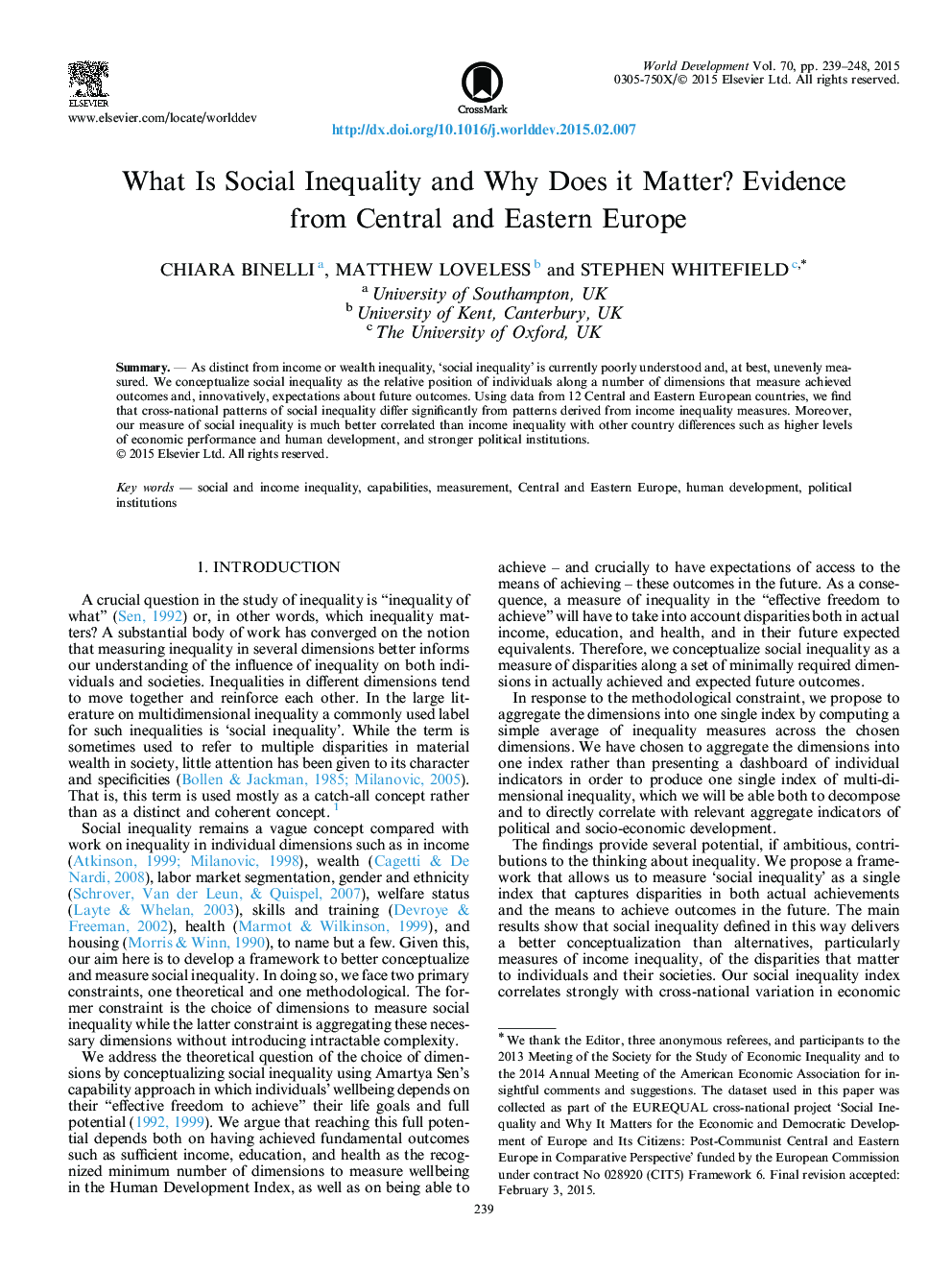| Article ID | Journal | Published Year | Pages | File Type |
|---|---|---|---|---|
| 7393912 | World Development | 2015 | 10 Pages |
Abstract
As distinct from income or wealth inequality, 'social inequality' is currently poorly understood and, at best, unevenly measured. We conceptualize social inequality as the relative position of individuals along a number of dimensions that measure achieved outcomes and, innovatively, expectations about future outcomes. Using data from 12 Central and Eastern European countries, we find that cross-national patterns of social inequality differ significantly from patterns derived from income inequality measures. Moreover, our measure of social inequality is much better correlated than income inequality with other country differences such as higher levels of economic performance and human development, and stronger political institutions.
Related Topics
Social Sciences and Humanities
Economics, Econometrics and Finance
Economics and Econometrics
Authors
Chiara Binelli, Matthew Loveless, Stephen Whitefield,
